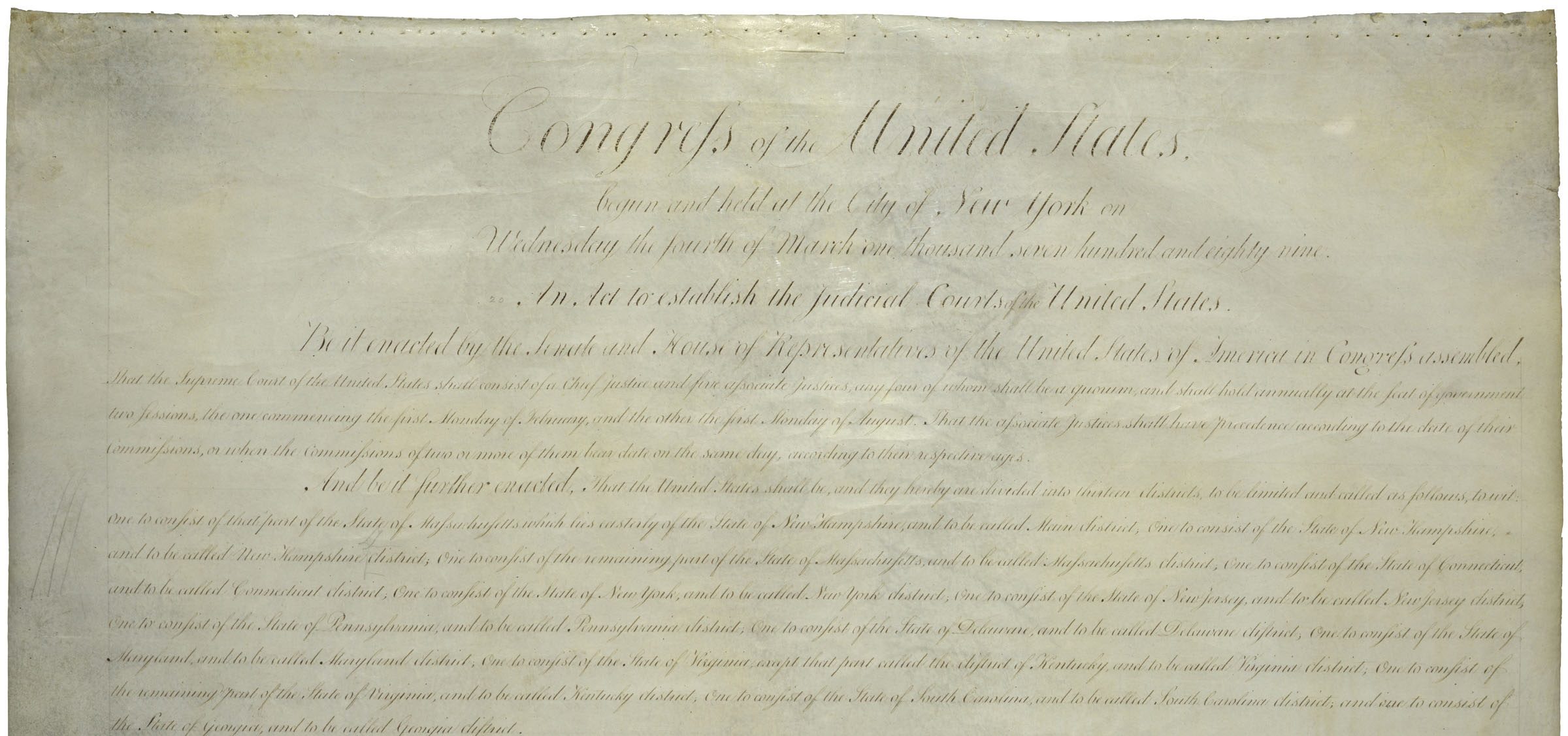In South Branch LLC v. Commonwealth Edison Co., No. 21-2861 (7th Cir. Aug. 22, 2022), a potentially massive Racketeer Influenced and Corrupt Organizations Act (RICO) civil case challenging corrupt influence in the Illinois General Assembly, ends at the pleading stage. The panel cites both the “filed rate doctrine” that precludes judicial review of utility rates and the rule of Fletcher v. Peck, 10 U.S. 87 (1810), that generally bars federal judicial intrusions on legislators’ motives for supporting legislation.
The plaintiffs alleged that the defendant, the major electric utility in Illinois, obtained a rate hike through bribery of the General Assembly’s powerful Speaker of the House. “To secure passage of favorable legislation, ComEd engaged in a yearslong ‘pay to play’ scheme with Michael Madigan, the former Speaker of the Illinois House of Representatives and Chair of the Illinois Democratic Party. Through that scheme, ComEd paid bribes to Madigan’s associates, and, in return, Madigan used his roles as Speaker and Party Chair to push advantageous bills through the state legislature.”
“The plaintiffs sued ComEd and Exelon on behalf of themselves and those similarly situated, bringing a federal RICO claim and several state-law claims.” The district court dismissed for failure to state a claim under Fed. R. Civ. P. 12(b)(6) on the ground that the complaint failed to allege proximate cause and that the suit was barred by the rule of Fletcher v. Peck.
The Seventh Circuit affirms. In the majority opinion, the court notes that the district court avoided ruling on another argument – the filed rate doctrine, which precludes courts from overturning legislatively-approved and filed utility rates – because it was an affirmative defense that was not fit for decision on a Rule 12(b)(6) motion. “Although the district court mentioned this doctrine as a potential ‘slam dunk’ for ComEd, the court thought it inappropriate to address at the Rule 12(b)(6) stage since we’ve said that the filed rate doctrine is an affirmative defense properly addressed through a Rule 12(c) motion for judgment on the pleadings . . . . But since the district court had before it all that was needed to rule on the defense, we construe ComEd’s motion arguing for dismissal based on the filed rate doctrine as a motion for judgment on the pleadings under Rule 12(c) and proceed to consider it below.”
“The plaintiffs acknowledge that the rates they paid to ComEd were filed with the ICC [Illinois Commerce Commission]. And although that would seem to trigger the filed rate doctrine’s bar on judicial adjustments to filed utility rates, the plaintiffs seek monetary damages (and not declaratory or equitable relief) for ‘overpay[ment] for electricity’ from ComEd under RICO. See 18 U.S.C. § 1964(c). In effect, they request a federal judgment retroactively adjusting the electricity rates they paid. To allow such a claim to proceed, we would need to hold that the filed rate doctrine has been displaced by RICO.”
Upon an analysis of RICO, the panel concludes that Congress did not abrogate the doctrine. “Setting retail utility rates is traditionally a matter of state concern, and Illinois has long provided for the ICC’s exclusive regulation of retail electricity rates . . . . We typically presume that a federal statute does not preempt or disrupt a state’s legal or regulatory regime in areas traditionally associated with state police power without stating so clearly . . . . If RICO was meant to allow claims like the plaintiff’s—a claim which threatens to substitute a long-rooted state policy in favor of judicially imposed electricity rates courtesy of the federal courts—one would expect the statute to say something to that effect. Yet RICO is silent on this front.”
The majority also notes Fletcher v. Peck, an opinion signed by Chief Justice John Marshall over two centuries ago interpreting the Contract Clause. Under Fletcher, “We are not in the business of second-guessing legislative judgment calls . . . . If this suit were allowed to proceed, the plaintiffs could not rest on their allegations as they can here at the motion-to-dismiss stage; they would need to conduct discovery for facts supporting their contention that ComEd’s bribery of Madigan directly caused the . . . legislation to pass . . . . That would necessarily involve probing the motives of individual state legislators who voted to enact the legislation to understand Madigan’s influence on them. Yet judicial tribunals rarely dive so deeply into the legislative process or into legislators’ motives.”
“At bottom, when the plaintiffs paid their electricity bills based on rates which had been properly filed with the ICC, they paid the state’s required legal rate. Based on our above analysis, we hold that the plaintiffs suffered no legally cognizable injury by paying this legal rate and thus were not ‘injured in [their] business or property,’ as required to pursue a claim for damages under § 1964(c) of RICO.”
In a brief concurrence, Judge Jackson-Akiwumi would have affirmed solely on Fletcher v. Peck grounds and would not have reached the filed rate doctrine.
